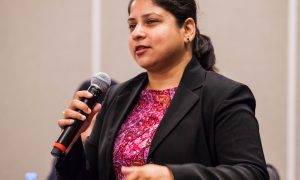RASHNA IMAM, MANAGING PARTNER AT AKHTAR IMAM & ASSOCIATES, ON WORKING AS A CORPORATE LAWYER, HER INTERNATIONAL WORK EXPERIENCE AND HER ADVICE TO LAW STUDENTS
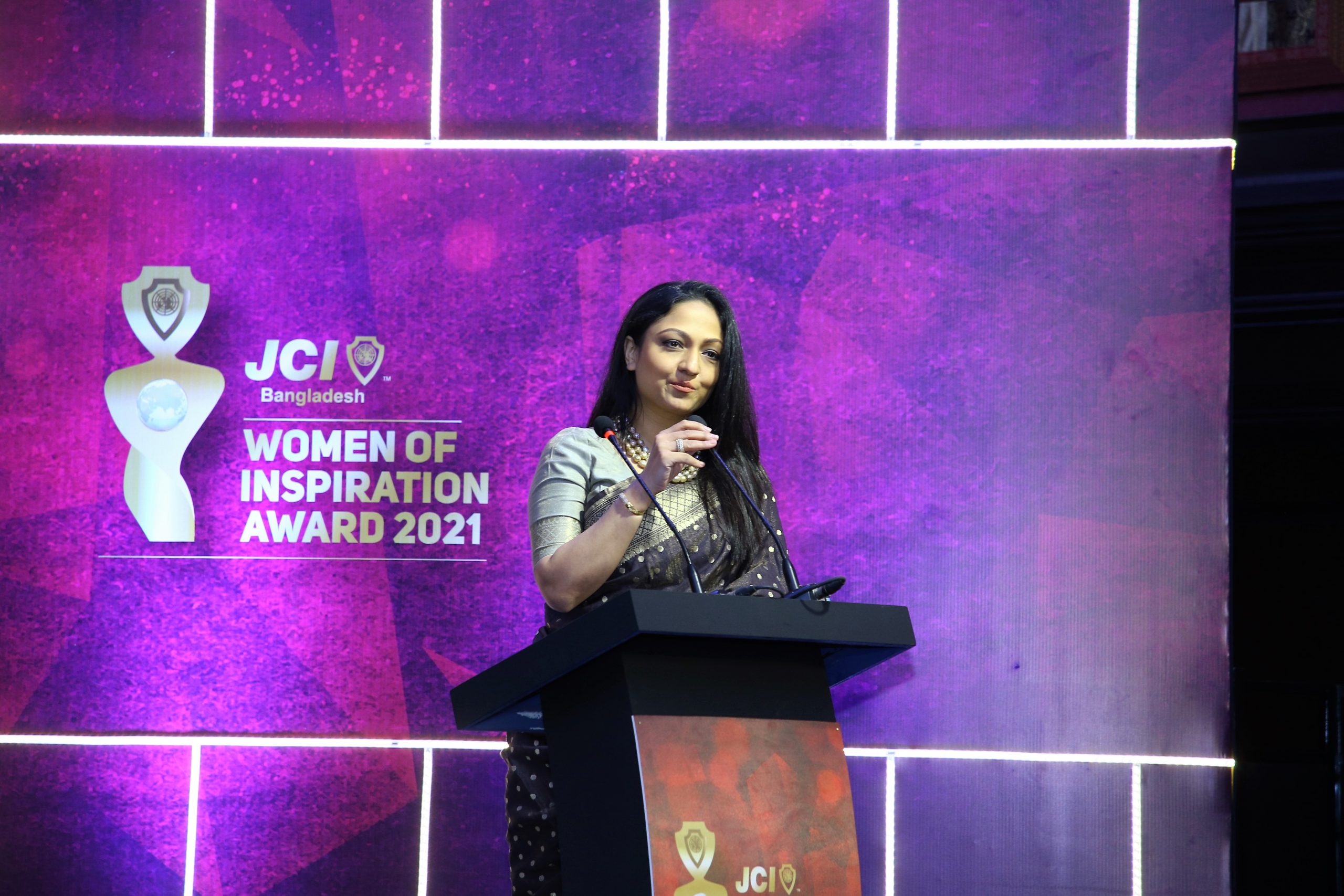
This interview has been published by Maaz Akhtar Hashmi and The SuperLawyer Team. The Interview was taken by Priyanka Cholera.
Your successful journey as a barrister in Bangladesh is notable and applauded across the globe. What inspired you to study law? Tell us a little bit about your journey of becoming a lawyer.
My first glimpse into the legal profession was through my father’s eyes. He is a Senior Advocate of the Supreme Court of Bangladesh.
Although I was from a pure science background, at the age of 16, I decided to eventually study law. My respect for law and the opportunity it provides for impactful work drew me to the profession. My father was always in a hurry. He wanted us to finish studying, come back, settle down and start practising. So, I opted for a 2 years LLB degree at the University of Buckingham. Buckingham was closely linked to Margaret Thatcher, who as Education Secretary oversaw the creation of the university college in 1973, and as Prime Minister was instrumental in elevating it to a university in 1983 – thus creating the first private university in the UK since the establishment of the University Grants Committee in 1919.
It was a very intense degree, with summer vacations no longer than a few weeks. However, I enjoyed studying, and many would have described me as a nerd back in those days. I wasn’t sure how well I was going to do but eventually shocked everyone with first-class honours’, which opened up further opportunities during my post-graduation.
After my LLB, there was a 9-month gap between LLB and the Bar Vocational Course. During that period, I did an LLM in International and Commercial Law at the University of Buckingham. Afterwards, I went for the Bar Vocational Course and eventually came back to Bangladesh.
Being an alumnus of two of the world’s renowned universities, the University of Oxford and the University of Buckingham, London, is in itself a matter of immense pride and privilege. Could you please tell our readers why is studying at Oxford unique?
I always wanted to get into Oxford. I completed a Bachelor of Civil Law, one of the most prestigious postgraduate law degrees in the world. Only a handful of lawyers in Bangladesh have secured admission and/or completed this degree, and to the best of my knowledge, no Bangladeshi woman till date. The experience there was fantastic. One of the best things about Oxford is that you are surrounded by the best and the brightest so that in itself makes a very intellectual and stimulating atmosphere and a very enriching experience. And not just that, you end up being part of a very elite intellectual network. And you can reach out to this network at any point in your career, should the need arise. The teaching style these Universities have to offer is that they have lectures and round table seminars, but they also have small group sessions. These small group sessions are essential since you get a lot of personal attention from the tutors. It allows you to expand and develop the ideas that are touched upon in the lecture.
On the other hand, talking about irregularities, I felt that prejudice needed to be changed at these Universities/Colleges. Women of colour, brown women, Asian women, whichever way you describe women, deserve to be in these places as much as anyone else. And the decision should be based on nothing but merit. There were quite a few Indians in the BCL course that I was pursuing. I also would be lying if I said that I didn’t feel the pressure because I felt that I was representing a country, especially women. So that made me work harder, it made me take in and absorb as much of the Oxford experience as possible, and also it instilled in me a sense of responsibility. When you get recognition, and you get into a very prestigious University, that gives you visibility. And visibility means 100s and 1000s of people would be looking at you, and you have the ability at that point to provide them with the hope that this is possible, and you can do this as well. That instilled a deep sense of responsibility, which is what keeps me going and keeps me inspired.
The esteemed Bar Vocational Course (BVC) that grants the title of “Barrister” is a gruelling opportunity every student aspires to seize. Although the courts do not recognize the course, why do you think the crowd opts for this course?
I want to give a bit of a background here. In common law jurisdictions, there is a barrister solicitor division. Barristers take instructions from the solicitors, and the solicitors take instructions from the clients. So, barristers specialize in courtroom litigation. But in Bangladesh, this division does not exist, as our lawyers are just one group called advocates. Suppose one does the BVC and becomes a barrister. In that case, he will not get any special exemption from sitting for any bar enrolment exam and would have to go through the same enrolment process as any locally educated lawyer. So, in that sense, there is no added benefit.
However, perception is important. It is perceived to be very prestigious. And the reason is twofold, firstly it’s tradition, as we have had the biggest name in the legal and political arena in the Indian subcontinent who have been Barristers, Nehru, Jinnah. So far as Bangladesh is concerned, most of the legendary lawyers have been barristers. So, that makes it prestigious, and prestige itself gives you a competitive edge.
Moreover, it is not entirely without reason. Some may argue that it’s of no use whatsoever. I beg to differ because it does equip you with a skill set that is very relevant to practice, drafting, opinion writing, client interviewing, and advocacy. These are the tools of trade for a lawyer. Unfortunately, in Bangladesh, there is no equivalent course. However, if there were one, then maybe the significance of the Bar Vocational Course would not be as much. So far as skillset is concerned, you get to acquire many transferable skills and very relevant to the legal profession. So that is why I never thought twice about whether I should do the Bar or not. I always knew I was going to do it eventually.
Talking about LLM and BVC, these are two completely different things. LLM is an academic qualification, and on the other hand, BVC is a professional qualification that is supposed to equip you with professional skills like opinion writing, drafting, client interviewing, etc. So, they both have their merits. But if someone wants to argue that the Bar Vocational Course will not add any value to your practice, that is completely wrong and cannot possibly come from a practising lawyer. Because in practice, this makes a huge difference and will give you a competitive edge. In the end, it’s all about what clients want from their lawyers. Clients would want to go to a barrister as opposed to someone who doesn’t have that tag. Of course, this doesn’t mean that the locally educated lawyers are not as good, but I am only referring to the perception, which gives barristers a competitive edge. So, if you want to practise law, then of course, by all means, go for BVC, but if you want to teach law in Bangladesh, then I would say go for the academic LLM, moving on to a PhD.
Akhtar Imam & Associates is one of the most prestigious law firms in Bangladesh. Would you please share with our readers the array of work you handle at the firm?
At Akhtar Imam & Associates, my main areas of specialization include Corporate and Commercial work, both advisory and dispute resolution (litigation and arbitration), and judicial review or writ. Other areas include foreign investment laws, labour and employment laws and banking. I am very privileged to be in this firm. Currently, I am the firm’s managing partner, and with that comes a lot of managerial responsibilities over and above legal work. Because this is one of the leading firms in the country, we have a great list of clients, which gives a lot of opportunity for high-quality work. As for what a day entails, I wish there were more than 24 hours in a day. But unfortunately, that is not the case. Since we are litigation specialists, the day would start with us going to court; the court is till 4 pm, so afterwards, we usually go back home to change and freshen up, then head for the chambers within 2 hours. And then how late into the night we have to work depends on the workload. On a very good day, I would come out by 9 pm, but it would go way beyond 9 pm on most days. I have had to stay in the firm till midnight, take work back home and work throughout the night. This is fairly common in the life of a busy practitioner in Bangladesh, more so for a firm that specializes in both advisory and litigation.
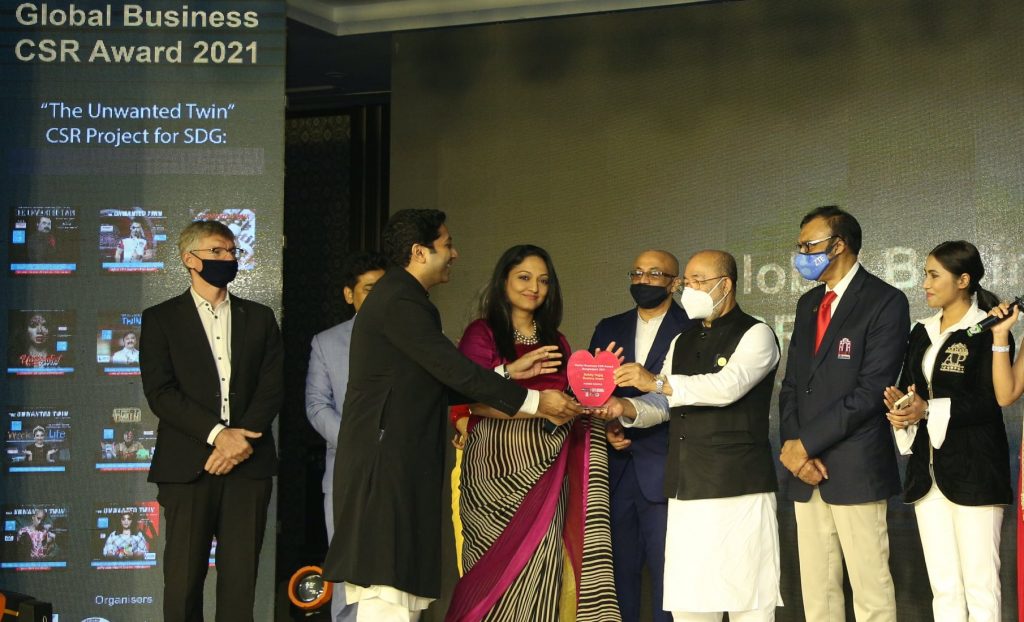
Despite being a successful corporate and commercial lawyer (advisory and litigation), you devote significant time to public interest litigation (PIL) on issues of grave public importance. Why is that?
I sincerely hope I have made some impact, or at least I am on the way to creating some impact. Impact always mattered to me from day one. I think that’s what gives our life meaning and purpose. I am a purebred corporate and commercial lawyer. While I was enjoying my work for the last 17 years or so, and I was making good money, I wanted to do more meaningful work that would give me and my life a sense of purpose. One of the areas that is really close to my heart is health rights.
Most, if not all, of the PILs you have been involved with, are on health rights. Is this a coincidence or a conscious decision? Could you tell us about some of the landmark PILs you have been involved with?
Healthcare is a provider induced service. Since we don’t have the technical expertise, whatever the advice is from our healthcare service providers, we tend to follow it blindly. So, the need for quality service and accountability in the health care sector is of paramount importance. While the pandemic has taught us many things, one of the biggest revelations is that the healthcare sector in Bangladesh and the subcontinent, in general, is very fragile. There is a dire need to strengthen the healthcare services sector. For that, we need, among others, a robust legal and regulatory framework to ensure quality and timely healthcare services and accountability. So, this is one of the driving forces behind most of the public interest work that I do. I want to help create a supportive legal and regulatory framework to regulate the healthcare sector and work on enforcing health rights. There are legislative gaps all over the place in the laws governing the healthcare sector.
We have very few laws that regulate healthcare services, and even those laws are either archaic or inadequate or in dire need of reform. In 2016, I was one of the filing and conducting lawyers of a landmark PIL to establish a legal framework for emergency medical services for road accident victims and protection of Good Samaritans. We got a landmark judgment in 2018, which issued guidelines mandating the provision of emergency medical services for road accident victims. All private hospitals have to provide emergency medical services irrespective of financial ability or the medico-legal nature of the case. That was just the first step. Miles to go before the guidelines are implemented across the country, and legislation follows.
I also filed a PIL for the prevention of medically unnecessary C-Sections, as a response to the alarming rise in the rate of unnecessary C-Sections on behalf of the leading NGO, BLAST. The case is ongoing. We sought formulation of guidelines in this regard. The guidelines have already been formulated and submitted before the court. Hopefully, after fine-tuning, these guidelines will be given the force of law so that all hospitals and clinics are bound to follow it to bring down the rate.
Another landmark Judgment that I managed to secure through PIL is the Judgment directing reform of the Human Organ Transplantation Act 1999, which has made it possible to allow kidney donation for emotional reasons in exceptional circumstances subject to verification to ensure that trading is not taking place. The donor does not have to be a near relative. This Judgment will go a long way in addressing the huge gap between the demand and supply of kidneys in Bangladesh.
At the beginning of your career, you worked for the London office of Baker & McKenzie as a corporate associate. Could you share your experience working at a major corporate law firm in the UK? How is practising corporate law in England different from Bangladesh?
I worked in the London office of Baker & McKenzie as a corporate associate. Exposure was fantastic in terms of world-class corporate law work, and I got the opportunity to represent global giants, but I always wanted to come back home at the end of the day. So, the idea was to gain as much experience as possible, come back home, resume practice because the scope for impactful work in Bangladesh is much more. I don’t think I can make that much difference in the West since it is already very developed. In contrast, in developing countries like Bangladesh, India, Pakistan, the scope for impactful work is so much more.
So far as law practice is concerned, the kind of support structure behind each lawyer, when you work in London or New York, is tremendous and is nothing compared to the support we have here. There are separate knowledge management departments and online legal resources that make a lawyer’s life much easier than in the Indian subcontinent. So, there is a big difference there in terms of the support system available for each lawyer. Hence, life is easier and simpler, and it’s easier to deliver quality work when working in a large law firm with that support system. M & A in Bangladesh is still at a nascent stage. We have had only a handful of major M&As. But of course, the opportunity to make an impact is so much more here than in Europe or America. I am getting the opportunity to plug the legislative loopholes/gaps in this country, which are fairly significant. So, the scope to actually make a difference and the satisfaction you get from those sorts of work is something I would not have had if I had stayed in London.
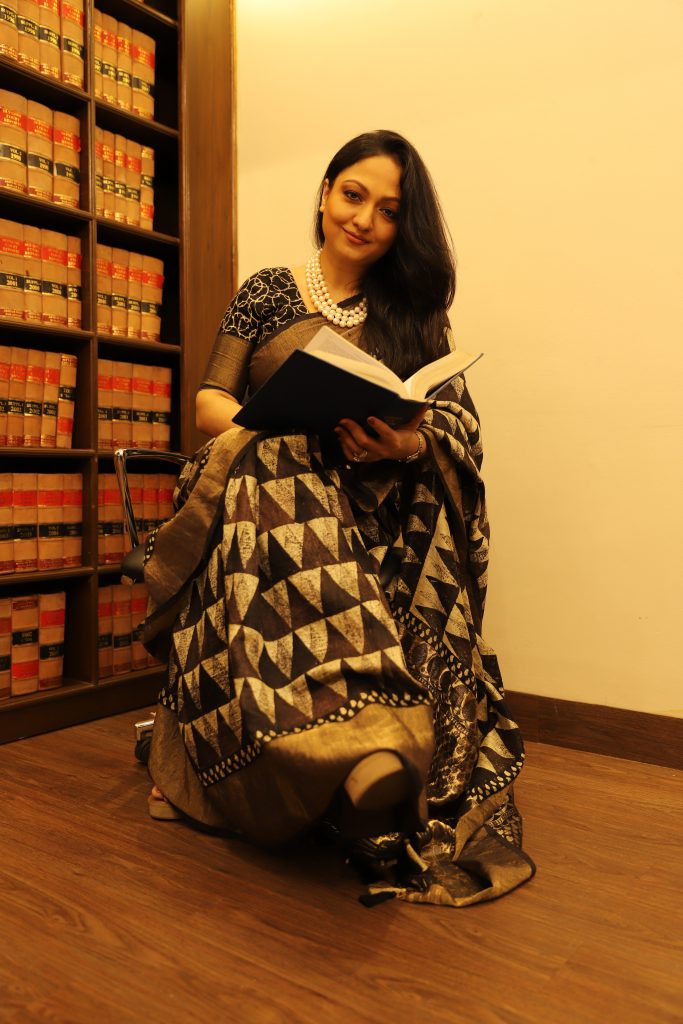
You’re also a Senior Fellow at the Youth Policy Forum (YPF). Could you highlight YPF’s vision to make youth an integral part of policy dialogue? Tell us about its activities till date.
Youth Policy Forum is a fairly new forum for young people. What’s fantastic about the Youth Policy Forum is that they have had phenomenal growth over the last few years. I have rarely seen a Youth-Led Organization this interested and effective in the sense of reforming the policy-making system of Bangladesh. Youth are generally not that interested in taking an active part in law and policy reform. But YPF has managed to mobilize the youth of today very effectively and engage the youth with the policymakers and experts from all sectors very effectively in a very short period of time. So, I take great pride in saying that I am one of their senior fellows. They have been doing great work in initiating critical dialogues on law and policy reforms on topical issues. And they offer public policy courses in the Bangla language, which is very useful for the masses in Bangladesh since everyone is not proficient in English so as to be able to develop their expertise and knowledge from the English courses available elsewhere. They are doing a fantastic job, and the impact of YPF is being felt amongst law and policymakers.
You have hosted legal webinars for your organization Academy of Law & Policy (ALAP) and have depicted robust involvement in numerous workshops. Tell us a little bit more about ALAP and how it offers opportunities for impactful work. How can young lawyers and law students get involved?
ALAP is very close to my heart. This is currently a registered trust, authored by my father, barrister Akhtar Imam. I am one of the founder trustees and the executive director. All of the trustees, despite being very busy professionals from leading law firms, have all come together under this umbrella, on a purely pro bono basis, because we all share one common interest: impactful work and law and policy reform. So, this is one of the main agendas with which ALAP was set, where we are going to conduct research on issues of topical importance, engage in advocacy work and much-needed law and policy reforms. Bangladesh is a very new country, and the laws are either discriminatory, archaic or inadequate. We are identifying laws that are in dire need of reform, doing the necessary research, and engaging in advocacy to bring about that reform and, of course, PILs on issues of grave public importance. ALAP has been formed with primarily these in mind. To date, some of its works have been the ongoing legal webinar series; we have filed a PIL to improve access to emergency medical services for all types of patients. We are also actively engaging with the regulator on company law reform. Our Companies Act is fairly old and is in dire need of reform. Reform talks have been going on for quite some time but to no avail. We organized a webinar on company law reform in which we invited the Hon’ble Minister of Commerce as Chief Guest. He appreciated ALAP’s efforts in preparing a reform proposal for the Companies Act and has invited ALAP to submit the reform proposal to the Commerce Ministry.
You adjudicated the Bangladesh Rounds of the prestigious Philip C Jessup International Law Moot Court Competition 2021. How would you describe your experience judging the oldest and the most significant international moot court competition in the world? How are these activities effective in the professional development of law students?
I took great pleasure in being a very mean judge to start with. I was very finicky and asked too many questions, interrupting the speakers to assess their ability to handle a difficult judge. But I enjoyed it a lot, giving everyone a difficult time. Jokes aside, what was fantastic about the experience was that it was very reassuring to see the talent pool in Bangladesh. They are, after all, the future of the Bar and the Bench here. The legal education infrastructure leaves a lot to be desired in Bangladesh. They don’t have the best resources and expertise available to teach these kids. Despite all the limitations, their potential, as evident from their performance, was very reassuring indeed. Personally, it was very refreshing to be on the other side, and I also realized how difficult a job judging or doing justice is. Overall, the experience was fantastic, and more of such mooting competitions should be organized in the future.
Your work as a corporate and commercial lawyer specializing in advisory, arbitration and litigation earned you a well-deserved ranking in renowned international legal directories like Chambers & Partners and Legal 500. How do you feel about that?
I am very happy, fortunate and humbled that my work is being recognized. International legal directories are also very useful for legal practitioners in accessing international markets and getting high quality international legal work.
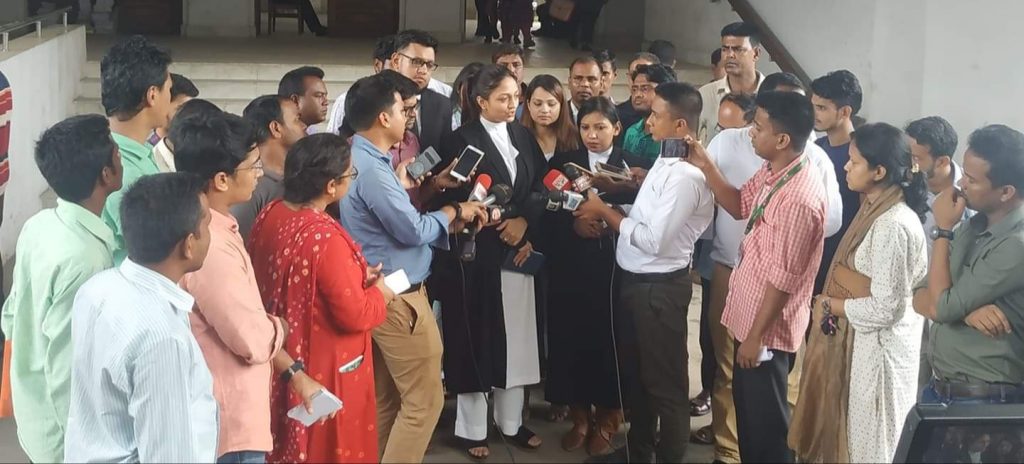
Did you face discrimination or sexual harassment at the workplace at any point in your career? How did you handle this? How do you create a safe space for yourself in this industry?
The entire experience has been challenging to date, despite being a second-generation lawyer. The legal profession in Bangladesh is entirely male-dominated. There is very low female representation in the Bar and the Bench. In the Supreme Court, a woman lawyer is very much a spectacle; who has the confidence to stand up and argue is almost a spectacle, which is not necessarily a good thing. When I am working, I would like to blend in and focus on my work instead of worrying about people. So far as the other challenges are concerned, Charlotte Whitton once said, “Whatever women do, they must do twice as well as men to be thought half as good.” The legal profession is no exception. I had to work doubly hard and deliver quality work before getting the same level of recognition. And once you are recognized, it’s not like the battle ends there; you just hit the next glass ceiling, which is getting paid as much as your male colleagues for delivering similar quality work. People are much more willing to pay men more for the same quality work.
However, it is not a problem without a solution. Women tend to undervalue themselves. We tend to hold back; we don’t negotiate a higher fee. We want to be liked much more than men do. Once you get recognized and become valuable for your client, negotiate a higher fee, do a little bit of market research, and find out what your male colleagues are being paid for the same quality work and demand that. Coming out of your shell and negotiating a higher fee, that experience would in itself be very empowering; whether or not you eventually get it is a different story. But you will be on the right track.
Your journey will not be as smooth as it is for a man. So, don’t even start your journey with the expectation that you will be treated in the same way. If you are a female litigating lawyer, the client perception is that you are not aggressive enough to make it in an adversarial environment like the court. This can be very demotivating for a young female lawyer. But they have to realize that at the end of the day, clients are all result-oriented. If you deliver results, they will sooner or later gravitate towards you. So, develop a thick skin, and focus on doing a great job.
At the beginning of my career, I used to get very hurt and demotivated when someone underestimated me without even knowing me or my ability. After a while, I realized that this was a huge asset. If the other side is underestimating me, I can catch them off-guard. I may merrily start capitalizing on that.
What advice would you have for others who want to set off in a similar direction?
Advice for young lawyers would be that there are no shortcuts to succeed in the legal profession. You have got to work very hard and smart. If you are here to make quick money, this is not the right profession for you. Especially if it is litigation, be prepared for a good long 10 years struggle before you start making decent money and being recognized for what you do. You have to treat it as a calling and not just a profession. This is not a 9 to 5 job; it’s much more than that. So, you have to give some very serious thought before you venture out and become a practicing lawyer. When it comes to your clients, make yourself indispensable for them, and then the rest of the journey will be smooth for you. Needless to say, when it comes to independent practice, the sky is the limit at the end of the day. So hang in there!
It’s also very important, especially for litigating lawyers, to find the right chambers. You need to find a chamber that takes an active interest in training lawyers.
As for young female lawyers, my first advice is that there is no shame in self-promotion, so promote the good work you are doing and grab the opportunities that come forward. Secondly, if you are ambitious, embrace that. A lot of female lawyers ask me questions about juggling family and practice. If you are ambitious about your legal career, you have to find someone very supportive of that. If you can’t find one, stay single! For dual-career couples, you need to build a support system of family and close friends so that you can reach out to them as and when the need arises.
Get in touch with:






